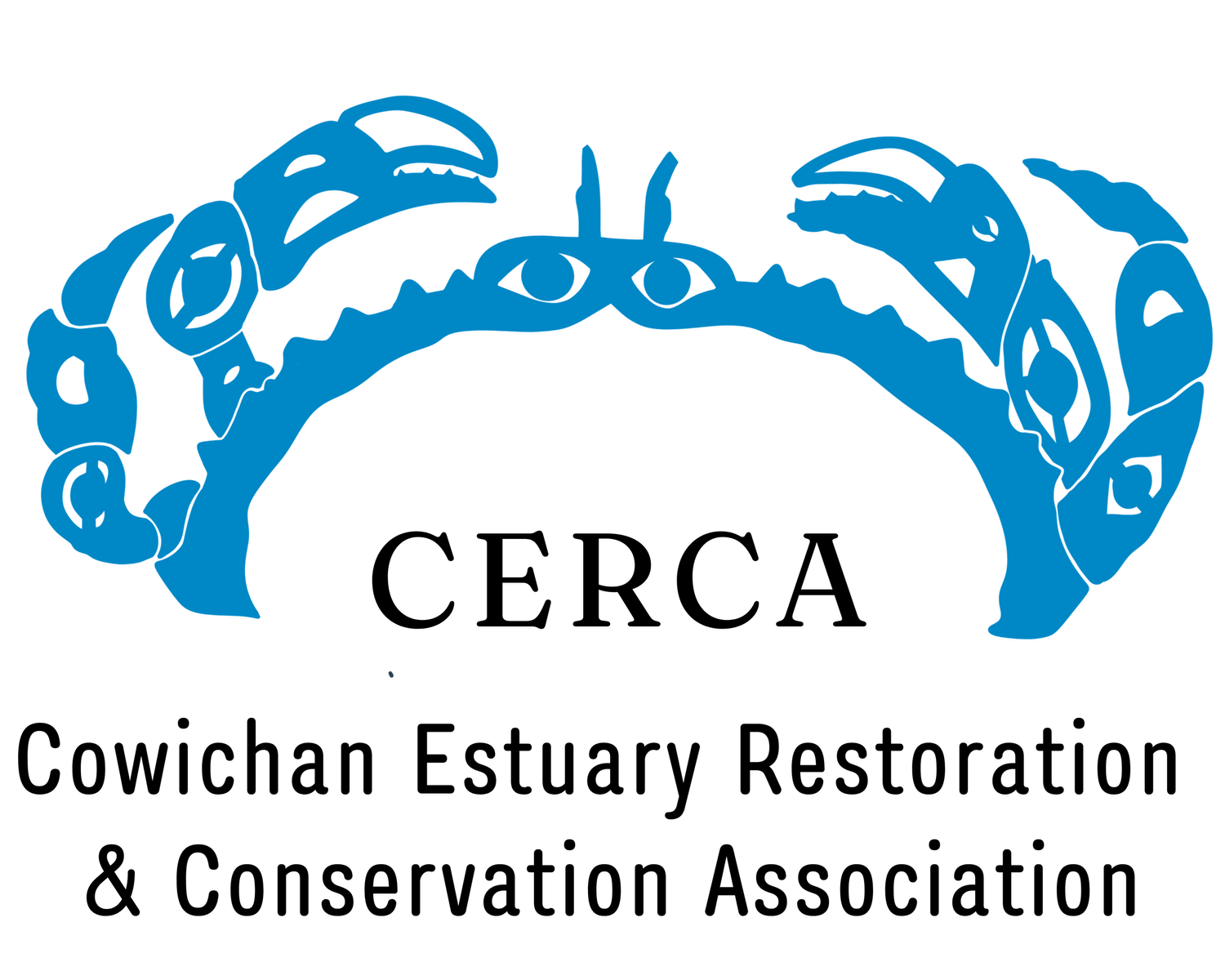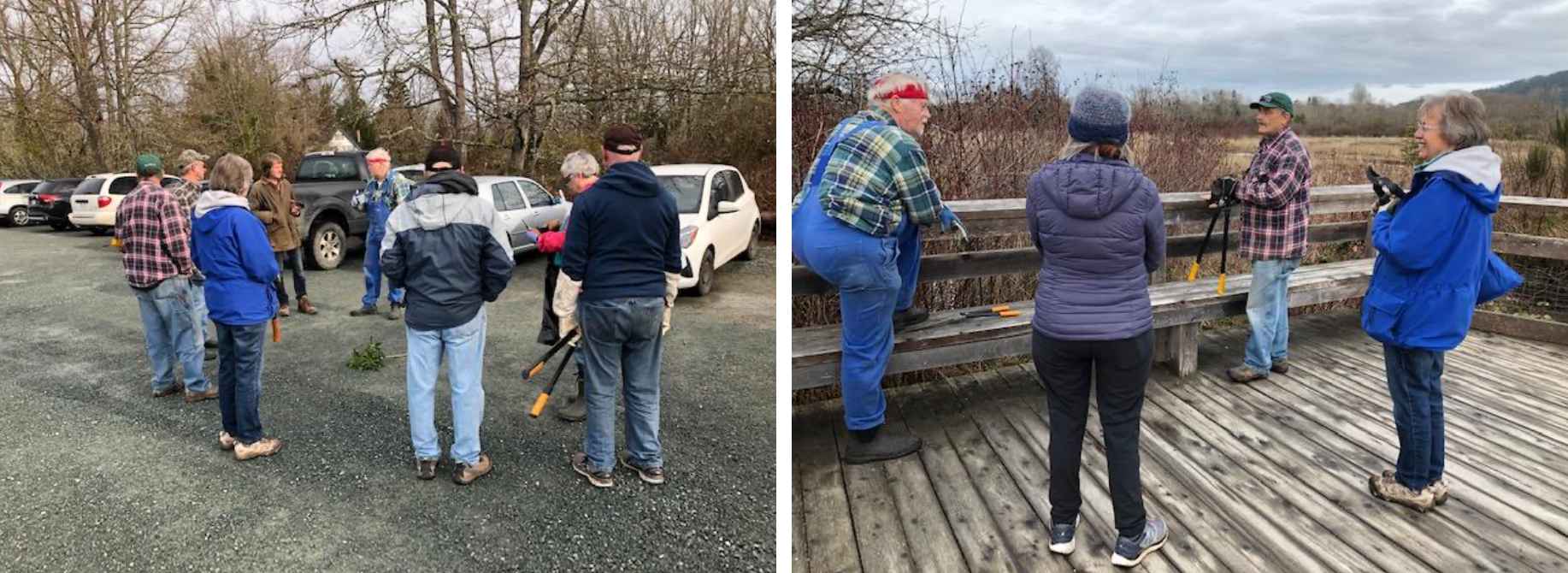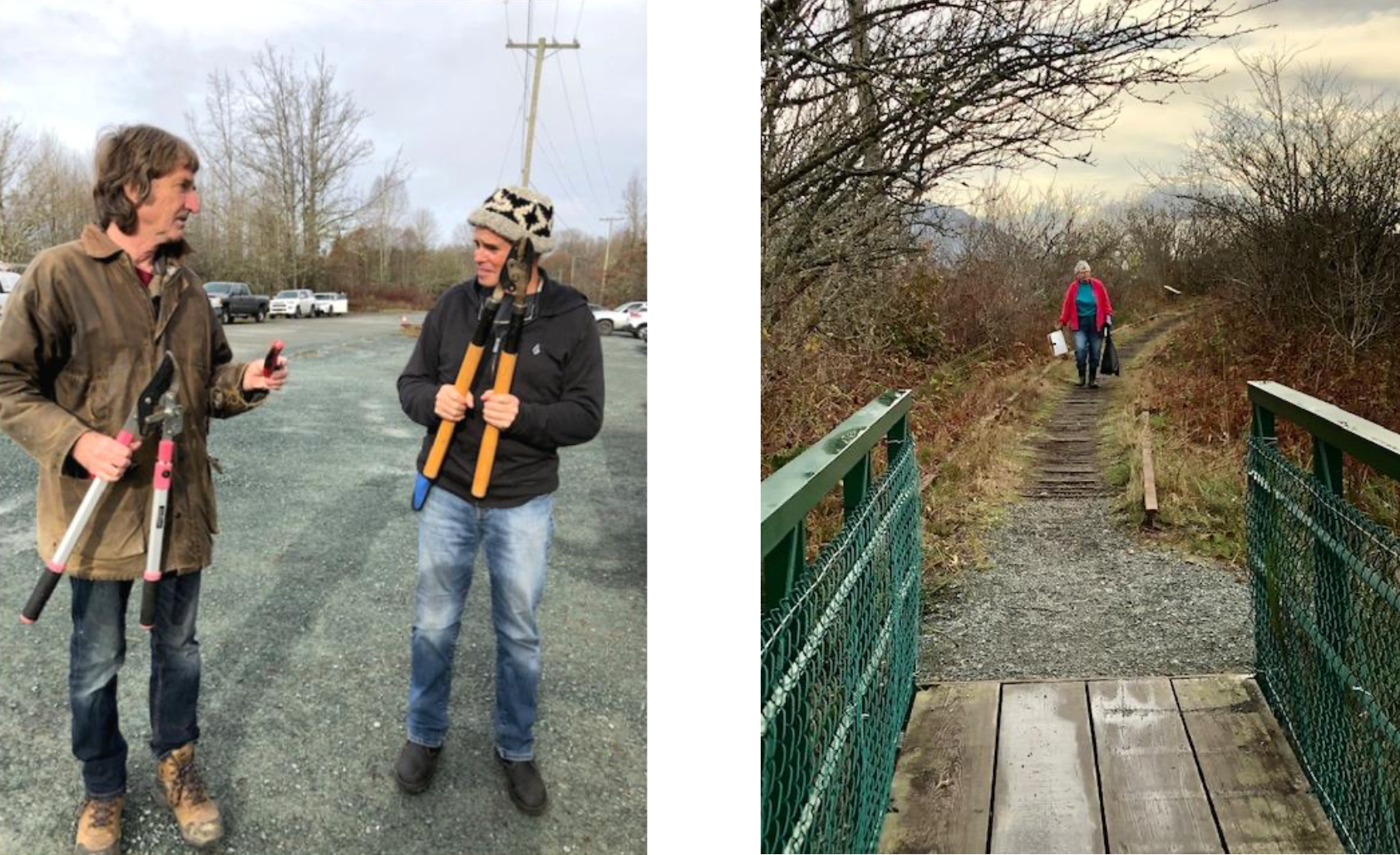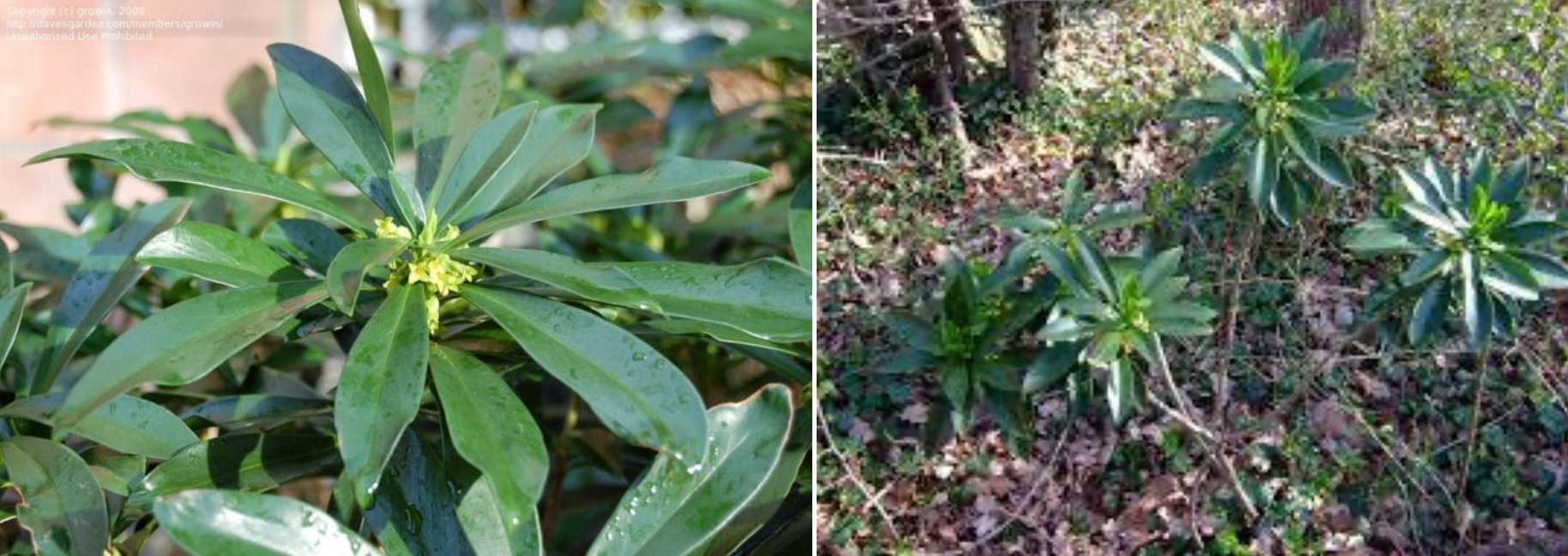Tackling Broom Again
Broom Removal Along The Cowichan Estuary Nature Trail
It was time again to tackle the broom problem along the self-guided nature trail paralleling the dock road. It is difficult to believe that it has been eight years already since we established the trail removing tons of brooms at the time. Following the re-zoning dispute in 2017 all trail maintenance including brush-cutting was discontinued until last year. In 2022 CERCA and CVNS hired a commercial operator and his side cutter to clear the heavily overgrown trail. By that time broom had already aggressively re-colonized sections of the trail crowding out native vegetation and growing in between native vegetation left untouched by the commercial brush- cutter. CERCA and CVNS, therefore, decided earlier this year to make a concerted effort to get rid of the broom before the bird nesting season.
On March 25 volunteers from both organizations met at the trailhead, well-equipped with clippers and other tools for pulling and cutting broom. The turnout was remarkable. With almost fifteen enthusiastic members, the job was completed within two hours. The weather also played along and there were no major glitches to report of. Gail Mitchell was kind and courageous enough to collect garbage all along the trail with special attention being paid to the dog-poop bags hanging in shrubs and trees, carelessly discarded by irresponsible dog walkers, an ugly sight indeed.
The first volunteers arrive at the parking lot by the trailhead. To the right, some of us met on the trail platform after the job was done.
Walking the trail in preparation for the broom removal we discovered a few specimens of Spurge Laurel (Daphne laureola) well hidden amongst the shrubs. As most of you are aware, Daphne which originates from Europe meanwhile constitutes one of the most dangerous invasive plant species all along the eastern Coast of Vancouver Island. It has spread already throughout the Gulf Islands causing great concern for the survival of native species. Unfortunately, this rather pretty ornamental shrub is still common in many gardens in the Cowichan Valley. It is slightly poisonous and not eaten by deer or any other herbivore, but its berries ripening in early summer are loved by fructiferous birds that widely spread the seeds. We have to keep a very close eye on the trail vegetation and other parts of the estuary trying to prevent Daphne from entering the edges of the estuary.
Large parts of the south-facing slopes of Mount Tzouhalem are already covered by Daphne which develops very large roots anchored deeply in the soil making plant removal difficult. Daphne seeds will survive several years, starting to germinate as soon as conditions become favourable. If you encounter any specimen while walking in nature, please pull it out if you can and help to control its spread.
On behalf of CERCA, I would like to take this opportunity to thank all the volunteers who sacrificed their valuable time on a Saturday morning to do a good deed.
Goetz Schuerholz Chair CERCA



